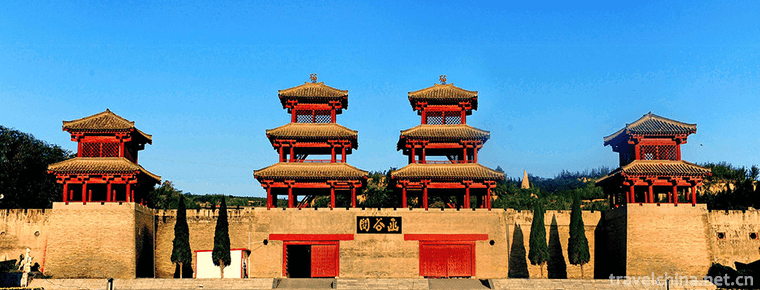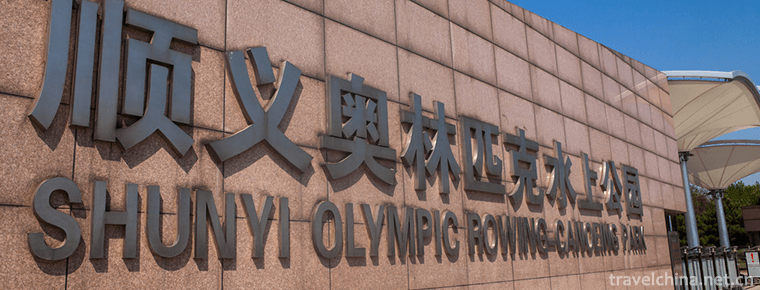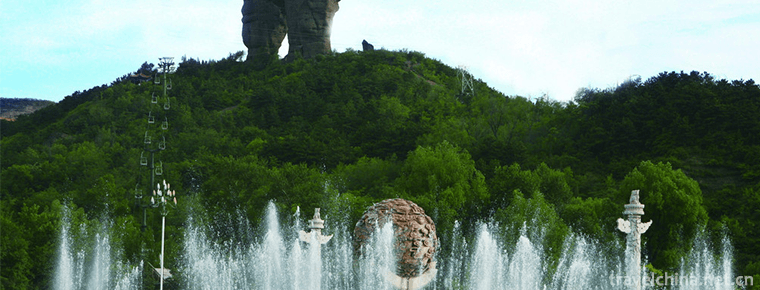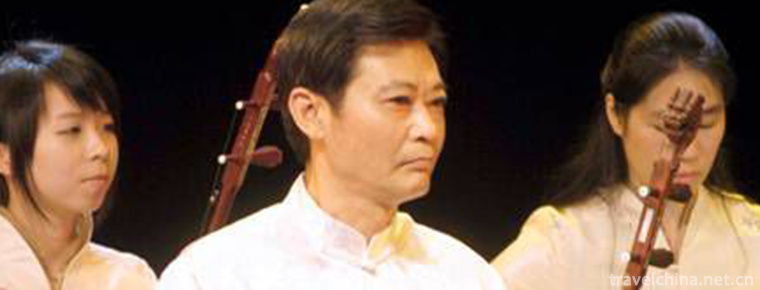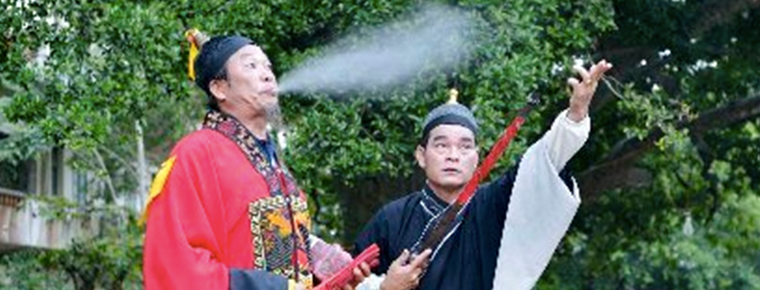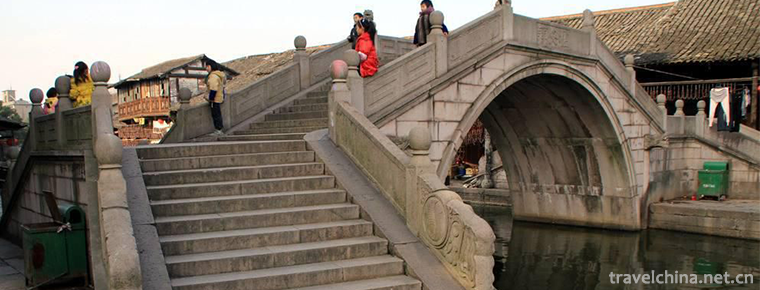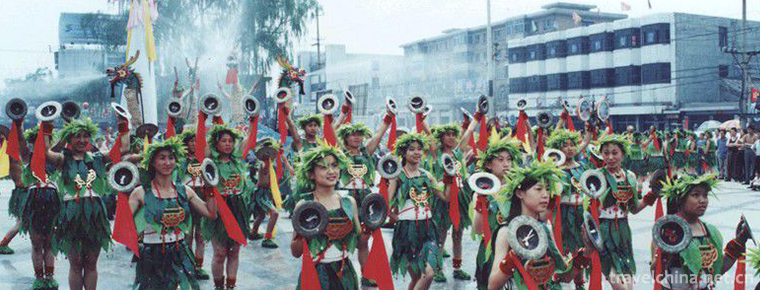Legend of Wang Xizhi
Legend of Wang Xizhi
Wang Xizhi's legend is a local folklore in Shaoxing City, Zhejiang Province. Wang Xizhi has few words. Jin Dynasty, one of the most famous calligraphers in China, once served as a general of the Right Army, so people often call him "Wang Youjun".
In 2011, the legend of Wang Xizhi declared by Shaoxing City, Zhejiang Province, was approved by the State Council and listed in the third batch of national intangible cultural heritage list.
historical origin
character
Wang Xizhi (303-361), a calligrapher of the Eastern Jin Dynasty, had few words. Langya people (now Linyi, Shandong Province) are native to Shanyin (Shaoxing, Zhejiang Province). Officials to generals of the right army, internal history, known as "Wang Youjun". He was born of a distinguished family in the Jin Dynasty. When Wang Xizhi was twelve years old, his father taught him the theory of pen-writing, which means "to understand by outline". When he was a child, he learned calligraphy from Mrs. Wei, a famous female calligrapher at that time. Later, he traveled to famous mountains in the north of the Yangtze River, and learned from all his strong points. Zhang Zhi, a cursive calligrapher, was able to use Zhongxu as his official book. Watching and studying the "law of a group of people, preparing for a family" has reached the height of "Guiyue group products, ancient and modern Moji 2". The preface to Lanting is called the first line book in the world. Taizong of Tang Dynasty liked Wang Xizhi's calligraphy very much. He collected a lot of Wang Xizhi's calligraphy works and asked ministers to learn his calligraphy. It is said that after his death, Taizong of Tang Dynasty buried all Wang Xizhi's calligraphy together, which is also the reason why there are few real works of Wang Xizhi.
His scribbles of cursive scripts are the most famous. Wang Xizhi practiced brush writing at home for three years. When he saw that his calligraphy was still not home, he could mutter to himself: Everyone said I was smart, and I worked for three more years. Now that my calligraphy was not home, it's a wonder that my master was not smart and the brush in his second hand was not magical. Why don't I go to the famous mountain to find a God to worship as Master? If he could give me a magic pen, I would become a world famous calligrapher.
Legend
Penetrating
Subject Item: Three Dimensions into Wood
Wang Xizhi studied and practiced calligraphy diligently. He even walked on the road, sat in his chair, and figured out the posture of famous calligraphers. He kept scratching his fingers. For a long time, even his skirts were scratched.
Once he lay in bed and scribbled in the air with his hand, which was placed on his wife. His wife said, "Why do you always scratch people? Own body, no more!"
When Wang Xizhi heard the word "style", he suddenly thought: Yes, it is necessary to create his own style. From then on, he searched through all the inscriptions and handwriting, rubbed the strengths of a hundred schools of thought, combined with his own diligence, and finally became the most famous calligrapher in ancient China.
It is because Wang Xizhi kept practicing his handwriting diligently that he has been practicing his wrist strength for a long time. It can be said that writing with a strong pen edge can really penetrate the back of the paper. Once he visited a friend who happened to be absent, so he wrote a few words on the tea table and left. Later, the family wiped hard and could not clean it, nor could they wash it with water. He wrote on the board and asked the woodworkers to take the carvings. When the woodworking was done, he found that ink still permeated the three-thirds depth of the board. Therefore, later people said that Wang Xizhi's word "three points into wood". This is an exaggerated statement, but it can show that his kungfu is deep!
Send goose feathers for thousands of miles
One night, Wang Xizhi was walking alone in the mountain vagina under the moonlight. Walking along, suddenly heard the "ga, ga, ga" goose call, he heard a surprise, thought: this area is few people, where come the goose?
So Wang Xizhi walked slowly along the goose's cry. After walking for a while, he suddenly found a temple in front of the sparse and clear mangosteen forest. There was a goose cage in front of the door. A long-necked goose like white jade was calling in the cage. Wang Xizhi went forward and liked it more and more.
After watching it for a long time, Wang Xizhi saw the light in the temple and walked in slowly. Under a small oil lamp, an old Taoist priest was buried in polishing ink. Wang Xizhi walked up to him until the old Taoist priest realized it and asked in surprise, "Wang Youjun? How would you like to come? Sit, sit, please sit!"
Wang Xizhi sat down and asked, knowing that the old Taoist priest was trying to copy Huangting Jing (a Taoist scripture). The old Taoist sighed and said, "Old age, poor eyes, poor writing!"
Wang Xizhi listened sympathetically and said, "May I help you?" The old Taoist priest was so happy that he repeatedly said, "Good, good!"
When Wang Xizhi raised his pen, he only felt that there was a bright silver in front of him, and he also found that yellow silk was delicate and lubricated, which was very interesting. Therefore, every word has written out the spirit, the brushwork is relaxed and relaxed, beautiful and extremely beautiful! Wang Xiyi wrote Huangting Jing in one tone, and it was almost dawn. The old Taoist priest repeated his thanks. Wang Xizhi said goodbye, the old Taoist sent out the door, opened the goose cage, picked up the goose, and gave it to Wang Xizhi, saying, "The mountain vaginals fly away today, leaving the Yellow Ting Jing on earth." Reward the goose to you!"
Wang Xizhi laughed and picked up the white goose and headed home. Think about it. Think about it. How strange are these two words of the old Taoist monk. He looked back and said, "Oh, no bamboo, no temple, no geese cage, no Taoist priest!" The goose flew into the sky as soon as he was shocked and his hands relaxed. It turned out to be a swan! Wang Xizhi vaguely saw the old Taoist Knight riding on the back of the swan and waved to him, "Giving goose feathers for thousands of miles is light and affectionate." Wang Xizhi looked carefully again, holding a goose feather in his hand! It turned out that the old Taoist priests were immortals. Wang Xizhi had to copy Huangting Jing.
Since then, Wang Xizhi's Huang Ting Jing has become famous and spread all of a sudden. Unfortunately, the copies that later generations have seen are not Wang Xizhi's authentic works. The Huangting Sutra written by Wang Xizhi has brought immortals to heaven.
"Da" and "Tai"
Wang Xianzhi is Wang Xizhi's seventh son. He is clever and eager to learn from his childhood. He specializes in cursive script and official script in calligraphy. When he was seven or eight years old, he began to learn calligraphy from his father. On one occasion, Wang Xizhi watched Xianzhi practicing calligraphy attentively, then quietly walked behind, suddenly reached out to draw the brush in his hand, and the pen was firmly grasped, not removed. The father was very happy and praised him. "He'll be famous again." On another occasion, a friend of Xizhi asked him to write on a fan. He waved his pen and then wrote. Suddenly, the pen on the fan polluted the characters. Xiaozhi's inspiration moved and a calf was vivid on the fan. Many people praised the dedicated calligraphy and painting, and Xiao Xianzhi grew pride.
Xiao Xianzhi asked his mother, "Can I catch up with my father in another three years?"
Mother shook her head. "Five years, okay?" Mother shook her head again.
"How long will it take you to catch up with your father?" said Xianzhi.
"When you have finished writing these 18 pots of water in the courtyard, your words will have bones and muscles, blood and flesh, and you will stand up steadily." One of the offerings turned around, and his father stood behind him. Wang Xianzhi was not convinced. He did not say anything. He practiced for another five years. He showed his father a lot of written words, hoping to hear a few words of praise. Who knows, one of Wang Xiyi's Zhang Zhang flipped over and shook his head vigorously. When the word "big" was raised, the father showed a more satisfactory expression. He then filled in a dot under the word "big" and returned all the manuscripts to him.
Xiao Xianzhi disagreed and showed his mother all the words he had learned. He said, "I practiced for another five years, and I practiced them exactly according to my father's words. Look carefully, what's the difference between my father and me? The mother looked at it carefully for three days and finally pointed to the point Wang Xizhi added under the word "big", sighed and said, "My son has rubbed all three cylinders of water, but only a little bit like it."
With dedication and perseverance, 18 large vats of water were exhausted in practicing Chinese characters, and calligraphy developed by leaps and bounds. Later, Wang Xianzhi's words reached the level of penetrating paper back and pure fire. His words were juxtaposed with Wang Xizhi's words and were called "two kings".
Current situation of inheritance
works
His most famous works include Lanting Collection, which is regarded as the first line book in the world.
His regular scripts, such as Leyi Lun, Huangting Jing and Oriental Shuo Painting Zan, were popular in the Southern Dynasty. They left behind various legends, some of which even became the subject of painting. His cursive script is respected as "the holy of grass" by the world. There are many engraved calligraphy books without original traces, such as "Seventeen Ties", "Xiaokai Leyi Theory" and "Huang Ting Jing". The ink outline of the copy includes Kong Shizhong Tie, Lanting Preface , Qing Tie in the snowy season, frequent mourning posts, funeral posts, far-off official posts, aunt's Posts posts posts, Ping An He Fengtang three posts, cold cute posts, Xingyu Tie and Tang monk Huairen's book "Preface of Sacred Religion".
Jia family
Wang Xizhi was born in about 303. His second uncle, Wang Lu (y), was Taishou in Puyang. Wang Lu heard that King Langyao and Wang's family had crossed the Yangtze River in the south. He abandoned his official post and took his old mother and family members south. It is estimated that Wang Xizhi, his mother, brother and three uncles, Wang Bin, came to Nanjing with him.
Because of the strong power of the Wang family, it once controlled the politics of the Eastern Jin Dynasty, so there is the saying that "Wang and Ma, all over the world", Wang Xizhi has naturally been well taken care of by the elders of the family. When he was young, he was not a talkative boy. People did not regard him as an excellent student, but cousin Wang Dun boasted that he said, "You are a good disciple of my family." When he grew up, Tang Shuwang told him to "open his stomach to the East bed" and was looked upon by Tai Liujian and married his daughter to him.
Wang Bing, the second uncle, was versatile, good at writing, painting and calligraphy. He could play music, archery, games and miscellaneous tricks. He was the most famous calligraphy teacher at that time, and he was Wang Xizhi's enlightenment teacher. And Wang Xizhi's father-in-law, Zaojian, is also a family of calligraphy. His brother-in-law, Zaojian (y n), writes better than Wang Xizhi. Wang Xizhi won after he came. When Wang Dun rebelled, the Emperor of Jin and Yuan Dynasty sent Wang Fang to dissuade him. On the contrary, Wang Fang helped Wang Dun rebel. If he hadn't died soon, he would have died.
Wang had many prime ministers in the Eastern Jin and Southern Dynasties, and none of Wang Xizhi's descendants could get the highest position. Among his seven sons and daughters, five sons have handed down calligraphy works, and Wang Xianzhi, the youngest, has become a master of calligraphy. Wang Xianzhi's ex-wife was Tai Liujian's granddaughter and was forced to divorce. Wang Xianzhi married Princess Xin'an and gave birth to a woman named Goddess Love, who later became Emperor Jin'an's queen. Wang Xianzhi's most popular legend is the story of his concubine and peach leaf. Taoyedu of Qinhuai River in Nanjing is famous for Wang Xianzhi's greeting and writing a poem.

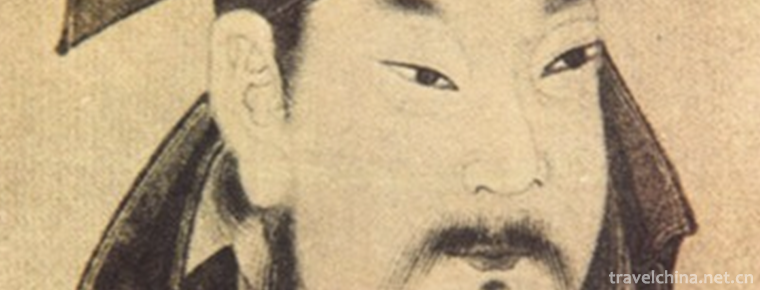
-
stired egg and tomato
Scrambled eggs with tomatoes, also known as tomato scrambled eggs, is a common popular dish among many people's families. The cooking method is simple and easy to learn, and the nutrition is reasonabl.
Views: 208 Time 2018-10-27 -
Hanguguan Historical and Cultural Tourist Area
Hangguguan Historic and Cultural Tourist Area is a national AAAA-level scenic spot built by Lingbao Municipal Committee and Municipal Government with an investment of 589 million yuan..
Views: 216 Time 2018-12-26 -
Olympic Rowing Canoeing Park
Beijing Olympic Water Park, also known as Shunyi Water Park, is located in Chaobai River, Mapo Township, Shunyi District, Beijing. Its building area is 31850 square meters, and the number of seats is .
Views: 149 Time 2019-01-02 -
Mingyue Gorge Scenic Area
Mingyue Gorge is located in the eastern section of Jialing Jiangxi Lingxia, Guangyuan, Sichuan Province. It covers an area of 6.1 square kilometers and is about 33 kilometers.
Views: 145 Time 2019-02-07 -
The Twin Colossals
Shuangta Mountain is located ten kilometers southwest of Chengde Summer Resort in Hebei Province, with a total area of 3000 hectares and beautiful scenery. It is the largest natural scenic resort in C.
Views: 285 Time 2019-02-08 -
Guangdong folk music
Taishan City, located in the southwest of the Pearl River Delta, is a famous home of overseas Chinese. Taishan's "Eight-tone Class" is one of the activities of Guangdong music.
Views: 218 Time 2019-05-01 -
Hainan Zhai Opera
Hainan Zhai Opera is a traditional sacrificial ritual drama in Hainan Province. It is similar to the Nuo Opera in northern China. It is known as "Nuo Opera in the north.
Views: 209 Time 2019-05-02 -
Xiamen lacquer line carving skills
Xiamen lacquer line carving technique is to use old brick powder, large paint and cooked tung oil as raw materials to mix, repeatedly beat into soft and resilient clay (commonly known as "lacquer.
Views: 85 Time 2019-06-12 -
Construction Techniques of Stone Bridge
Shaoxing's ancient bridge construction techniques can be traced back to the Spring and Autumn Period and the Warring States Period. To the Han Dynasty, the stone arch bridge construction techniques be.
Views: 216 Time 2019-06-15 -
Wenshui Tiaozi
Wenshui Biaozi is an ancient and unique traditional folk music art spread in Wenshui County, Shanxi Province. It is named for its special copper cymbals commonly known as "Biaozi" in perform.
Views: 144 Time 2019-06-29 -
Shougang Institute of Technology
Shougang Institute of Technology ( Shougang Institute of Technology ), located in Beijing City Shijingshan District It is an engineering college founded mainly by the Ministry of education, mainly bas.
Views: 194 Time 2019-11-27 -
Zhuokeji chieftains official village
Zhuokeji chieftain's village is located in xisuo village, zhuokeji Town, 7 km away from malkang county. The village was built in 1718 in the reign of Emperor Qianlong of the Qing Dynasty. It was a four story blockhouse. It was destroyed in the fire in 1936. From 1938 to 1940, the Tusi Suo Guanying organized human resources to rebuild it..
Views: 295 Time 2020-11-07

